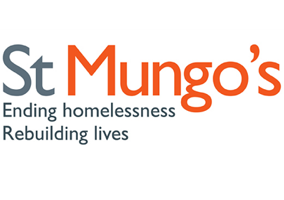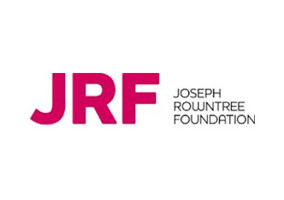After several high-profile strikes at charities and public bodies in recent months, with another at St Mungo’s in the pipeline, the role of unions has been brought to the forefront of discourse.
Moreover, some charities have announced that they will formally recognise a particular union – with large names such as the Joseph Rowntree Foundation (JRF) deciding to “walk the talk”.
For employees, having union recognition at their charity can mean they have greater collective power in negotiations over pay and workers’ rights.
But there are also reasons why charities may choose to recognise unions. There can, for example, be positives around retention of employees and staff culture.
Indeed, UNISON national community sector lead Gavin Edwards says it can benefit not only the staff but the charities themselves. “They become better places to work, employees are more likely to stay put and the organisations become stronger with their greater experience.”
Edwards praises charities such as Action for Children, Marie Curie and Together for Mental Wellbeing for formally recognising unions as “they can then work constructively to improve the workplace”.
Meanwhile, JRF chief executive Paul Kissack says the charity “should welcome the collective action of those who have too often felt powerless in the face of injustice”, which means “trade unions offer a source of hope” and are “a potential driver of social change”.
‘Hostility towards unions robs staff of an independent voice at work’
Edwards, from UNISON, says that though charities do a huge amount of good “there’s often a disconnect between these organisations’ moral or ethical missions and the barriers put up when unions try to represent their employees”.
He said: “Hostility towards unions robs staff of an independent voice at work. That leaves some charities open to accusations of hypocrisy and a failure to honour their own values.”
Sarah Vibert, chief executive of NCVO, says: “There have however been recent examples in some charities of a more challenging relationship between the leaders and their recognised union, largely brought on by the current economic context.”
Barbara Keeley MP, Labour’s shadow minister for civil society, says trade unions are “vital” to ensuring that workers are fully protected and have good relationships with employers, and “this is as true in the charity sector as it is in many other sectors”.
“It is important that charities can benefit from the improved employment practices that unions are well placed to negotiate with them as employers. From securing working people paid holidays, to equal pay for equal work and to winning the furlough scheme, trade unions have shown their worth time and time again,” she says.
Recognition enables ‘honest and constructive dialogue’
Mike Knight, chief people officer at Action for Children, says the charity was proud to have developed a positive and constructive relationship with UNISON and Unite.
“We have a partnership agreement in place and meet regularly to ensure openness and transparency in our strategy, purpose and financial position,” he says.
“This has enabled honest and constructive dialogue, allows us to celebrate our wonderful staff and volunteers as well as ensure we’re all working towards more safe and happy childhoods.”
Vibert adds: “Working within and alongside charities, unions can play an important role in staff engagement and representation. NCVO has a recognised staff union but even if an employer does not recognise a trade union, individuals can still choose to join one.”
She says there can be a range of benefits for organisations where senior leaders and union representatives are able to work well together to create positive environments for staff and volunteers, and navigate challenges collaboratively.
“Like charities, the trade union movement has a history of advocating on behalf of those with the least power, helping to secure rights and benefits which may not otherwise have existed,” she says.
“It is also important to remember that unions themselves are based on the voluntary efforts of hundreds of thousands of workplace union reps and represent a huge strength and value for the collective benefit of charities and volunteering across the country.”
Small charities
Civil Society News asked the largest 50 charities whether they recognise a union, and 29 responded. Of those, 18 said they did and 11 said they did not. The figures suggest that many large charities do recognise a union but it may be that those who did were more likely to respond.
A union can become recognised at any organisation, including charities, by asking the employer to do so voluntarily.
If the charity has fewer than 21 employees, it is up to them whether or not they recognise the union. But larger charities may be forced to if the union applies for statutory recognition from the Central Arbitration Committee.
Vibert says: “Smaller voluntary organisations may choose to recognise a union or decide on a different approach, such as engaging workers collectively through staff networks or by ensuring representation in decision making.”
Volunteers
Volunteers can also join a union, Vibert says, although they will have different rights to employed workers when it comes to representation.
Volunteering England, which became part of NCVO in 2013, produced a charter with TUC in 2009 which set out the ways organisations can engage paid staff alongside volunteers.
“One aim of the charter was to address long running concerns about paid roles being replaced or substituted with volunteers,” says Vibert.
“This issue has come to the fore again recently in the wake of wide-spread public sector strikes and we have looked at updating this charter. Defining specific roles for volunteers and paid staff has also proven increasingly challenging given changes in the nature and type of volunteer roles, sped up by the pandemic.
“We don’t encourage public service organisations to recruit volunteers to fill the gaps created by strike action because we think it can undermine good relationships between volunteers and paid staff.
“It could also have a negative effect on the longer-term sustainability and impact of services, and volunteers may not have a positive experience.”
However, NCVO does recognise that some charities have a particular role to play in emergency or crisis situations and may bring in volunteers under these circumstances.
“Many public service organisations engage volunteers on a regular basis – these volunteers may also decide individually to continue their usual volunteering activity during strikes.”
What does the future look like?
Keeley says she hopes “more charities and their staff take up the opportunities that trade unions can offer”.
Indeed, as unions make public gains it may be that the pressure mounts on charities to recognise unions, especially amidst the current economic climate.
As the cost-of-living crisis continues to squeeze the finances of charities and their staff, we could see an increasing onus on sector organisations to recognise unions to show they are willing to engage on pay and work-related subjects.
There are, however, sure to be a number of organisations that have different models in which to engage with staff on certain issues, and some which will resist formally recognising unions.
Related Articles












